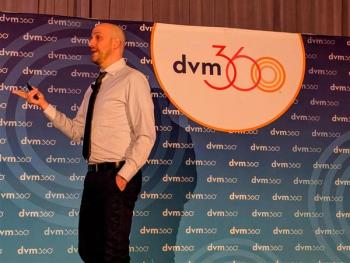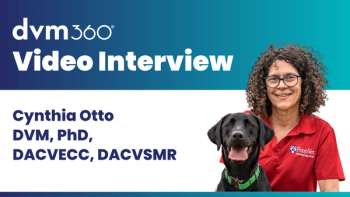
Hurricane lessons: Four things we learned from Harvey and Irma
As the 2018 hurricane season approaches, check out these tips from BluePearl hospitals in Florida and Texasthey just might help your own veterinary team in the midst of disaster.
Houston in the aftermath of the hurricane. | Shutterstock.com
Last year's hurricane season was not kind to people or animals. We all saw how storms flooded Houston, tore through Florida and hammered Puerto Rico.
As the 2018 hurricane season approaches, I've been thinking about the lessons these storms taught us. BluePearl Veterinary Partners kept animal hospitals open 24/7 in the midst of both Hurricane Harvey and Hurricane Irma. This means we learned a lot, because natural disasters never follow a script.
I wanted to share some of the lessons we learned, in hopes that they'll help your veterinary practice in the event of a natural disaster.
1. Your predictions about power will probably be wrong.
Our canny team staff in the Houston area managed to rent a generator for our hospital in Spring, Texas-it arrived one day before Harvey hit. Even though waters were rising everywhere, we miraculously never lost power and didn't even need to turn the generator on.
Did your veterinary hospital weather these storms too?
I'd also love to hear what you learned during these hurricanes, because I know many of you have come up with creative solutions. So please add your thoughts in the comments field of this article.
Meanwhile, a maintenance crew checked the permanent generator in our Tampa hospital one week before Irma. They said: thumbs up, good to go. After Irma hit, that generator kept us going for two solid days-and then gave out. Our team heroically transported patients to BluePearl hospitals in Brandon and Clearwater, which are 19 and 22 miles away. Fortunately, power crews restored electricity in Tampa that afternoon.
So you'll lose power where you don't expect to lose it and keep power where you don't expect to keep it. Needless to say, we evaluated all of our generators with new insight and installed a new one in Tampa.
The new generator being installed in Tampa. | Photo courtesy of author
2. Your team will save you, so save your team.
We knew our associates would come in to work even during the storms, because that's the kind of superheroes they are-but some of our people still reported for duty even as their own homes were being flooded and destroyed. I cannot express how humbled this makes me feel. Many slept overnight in our hospitals. I don't think words exist to describe their dedication and teamwork.
We stocked up on food and toiletries for the team members who would essentially be living in our hospitals, but next time we'll do even more-as one of my colleagues put it, “There's only so many crackers you can eat.” Our Houston team waited two hours in a grocery line for the ingredients to make pancakes and bacon after Hurricane Harvey. When bottled water disappeared from shelves in Tampa, our people found some in an unlikely place-gas stations that had run out of gas. No one was shopping there anymore, so they had water left.
Afterward, many of our employees who weren't in the paths of the hurricanes asked what they could do to help. We set up a BluePearl hurricane fund that allowed our associates to contribute to fellow employees who suffered losses during the storm. BluePearl itself put $10,000 into the account. We're happy it provided some relief to those who lost homes or property during the storms.
3. Be flexible, because your patient load is going to change.
You'd think that in a disaster like Hurricane Harvey, patients would be coming in for trauma and life-threatening conditions. And they did. But we also got a wave of patients with ear infections, minor scrapes and other matters that would normally be ably handled by primary care veterinarians. We don't offer primary care treatment, because our focus is specialty and emergency medicine. But many of our close partners in the primary care veterinary community were flooded or closed. The only humane thing for us to do was to treat these primary care patients until their family veterinarians could get back on their feet, so that's what we did.
In Florida, we had a huge number of dogs biting other dogs or cats, which was probably the result of so many people and pets fleeing their homes and staying with friends and family. One dog doesn't always understand that the other dog is an invited guest. We also experienced a high number of urinary tract blockages. When people drive a couple hours away with their pets, get into a hotel, and maybe set out food and water a bit later, the stress and dehydration can have an effect on the pet.
4. Infectious diseases are going to spread.
Picture all the news footage you watched of dogs and cats being loaded into boats in Houston, and then making their way to shelters. Now ask yourself: How likely is it that each of these animals was properly vaccinated? We all know the answer-highly unlikely. In disasters, animals are thrown together, and it's quite possible that canine influenza, canine distemper, parvovirus infection and other infectious diseases will spread.
People often flee to the north to get away from hurricanes, so it stands to reason that their pets' communicable diseases will travel to Georgia or northern Texas right along with them. It's part of our responsibility to know which infectious diseases are common in our local areas and to get the word out through veterinary associations to make sure others are prepared for what may be coming.
As we prepare for the new hurricane season to begin in June, I have one other takeaway from last year's storms. And that is simply that we veterinarians, technicians and assistants have a very important job during natural disasters. It's a role that often goes unrecognized. But we all know that pets are family, and people will do anything to protect their families. That's why we stay open during hurricanes. We're saving the lives of pets. And we're helping people with what matters most.
Jennifer Welser, DVM, DACVO, was chief medical officer for BluePearl Veterinary Partners at the time this article was written. On May 1 she became chief medical officer for Mars' Veterinary Health Group.
Newsletter
From exam room tips to practice management insights, get trusted veterinary news delivered straight to your inbox—subscribe to dvm360.





